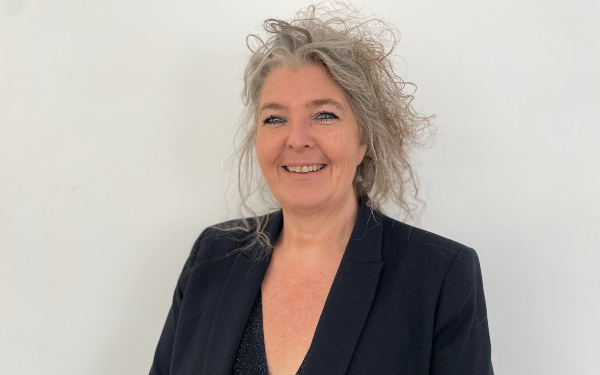
Has your employer acknowledged or addressed any issues with high caseloads in your team?
- They've acknowledged but not addressed them. (47%, 267 Votes)
- No, they've done neither. (37%, 209 Votes)
- Yes, they've acknowledged and addressed them. (10%, 58 Votes)
- N/A, we don't have caseload issues in our team. (6%, 35 Votes)
Total Voters: 569
An “exceptional experience for every child, everywhere, every time”: that is the overriding objective that Cafcass has set itself in its new three-year strategy, launched yesterday.
The goal would be challenging at the best of times.
Cafcass’s workload is driven significantly by factors outside of its control, including parental decisions to settle questions about their children’s future through the courts and councils issuing care proceedings when children are experiencing significant harm.
But with the family justice system emerging from the pandemic with more cases than previously – despite a decrease over the past year – and significant delays across both public and private law proceedings, Cafcass has set itself a colossal task.
Delivering what children want
Chief executive Jacky Tiotto says there were discussions internally about whether Cafcass was setting itself up to fail. But it decided to go with the objective because it was based on what children involved in proceedings told the organisation that they wanted.
“They say, ‘I want to know who my social worker is, I want them to tell me what they’re doing, I want them to turn up on time, I don’t want to be waiting in a line’. We put that all together and said we could do that and more,” she tells Community Care.
It is ambitious, and it is going to be difficult but, we think, which children would we tell otherwise ‘you’re going to get a slightly less good version of ourselves’?”
Fundamental to achieving the objective is the practice of Cafcass’s more than 1,400 family court advisers (FCAs) and the support and oversight of their 300 or so managers.
Cafcass’s 2023-26 strategy: measures of success
Among the measures of success in Cafcass’s 2023-26 strategy are:
- Increasing proportion of practice that is rated good or better in audits, with reduced variation between operational areas.
- Increasing volume of feedback from children, with a greater proportion of this being positive.
- Improving the timeliness of allocation of public and private law cases to family court advisers.
- Reducing staff turnover and improving retention.
- Having safe caseloads.
- Reducing the number of children in proceedings lasting more than 26 weeks in public law and 52 weeks in private law.
Narrowing gap in quality
Among the strategy’s priorities is to further improve the quality and impact of social work practice, in order to deliver an exceptional service to every child.
Here, Cafcass is starting from a good base. Following a focused visit in January, Ofsted reported that the quality of practice remained strong and, overall, had improved since inspectors’ last check, in 2021.
And practice audits carried out in December last year graded 73% of work as good or outstanding, compared with 63% in 2020.

Photo: Jakub Jirsak
Now it wants to narrow the gap between the best practice and the rest.
This will involve further embedding its relationship-based practice framework, Together with children and families, and increasing the effectiveness of management oversight and supervision, which Ofsted highlighted as an area that had improved in its latest visit.
Improving management oversight
Since then, Cafcass has sought to increase management capacity by reconfiguring its practice supervisor role – which involved holding cases while also providing supervision to FCAs – into two new positions: assistant service manager (ASM) and consultant family court adviser. Unlike practice supervisors, ASMs line manage some FCAs.
This has been challenging, with union Napo raising concerns about the resulting workload demands on ASMs.

Photo posed by models: (credit: nd3000/Fotolia)
Tiotto says the reform has been the right one in terms of improving management oversight, but admits it has been challenging reducing ASMs’ caseloads in order to achieve this.
“There are places where those managers are still holding the cases that they were holding before they were in their new jobs,” she says. “And we’ve taken the conscientious decision in most of those cases that until the case is heard in court, the same social worker should hold that case.
“But that does mean those managers are under pressure and we are trying to accommodate what that means.”
Protecting caseloads
Protecting caseloads for FCAs is also a key ingredient of improving practice, under the 2023-26 strategy.
These are now below pre-pandemic levels, averaging 20.3 for work after first hearing teams (down from 22.5 in March 2020) and 37.7 in those covering work to first hearing (down from 44.5).
However, such reductions have not happened everywhere, with 55% of FCAs carrying more than 20 open cases, which is the level the organisation believes enables relationship-led practice.
Caseloads are the vital sign of social work health, in terms of what the job is and what is required of you,” says Tiotto.
“We’re at caseload levels that are below the pandemic but are still not good enough given the expectations we have for what that work looks like.”
During the pandemic, Cafcass protected caseloads by holding them in its duty system or with practice supervisors. It also introduced a prioritisation protocol, where lower-priority private law cases in high-demand areas are overseen by a service manager until they can be allocated to an FCA.
There are further internal reforms that Tiotto says will help bring down caseloads over time. One is the use of post-assessment hubs, in which a manager oversees cases for which the work ordered by the court has been completed but a trial is at least six weeks away or not listed, removing them from the FCA’s caseload.
Addressing delay
Otherwise, tackling caseloads will go hand in hand with addressing increasing delay, in both public and private law, another aim of the strategy.
The figures here are stark. On private law, the duration of work after first hearing averaged 61 weeks from April to June 2023, up 22 weeks on pre-Covid levels.

Photo: gguy/Adobe Stock
Tiotto says a key problem concerns the rules for managing cases, the child arrangements programme, which prevents FCAs from seeing children before the first hearing, during which time they carry out safeguarding checks and interview parents.
The private law pathfinder, in Dorset, is testing enabling Cafcass to gather much more information early in the process, with a presumption that FCAs will speak to the child before the first hearing, in order to identify the key issues in the case. Tiotto says this is leading to earlier resolution of cases.
“The longer a case is held by a social worker the more likely in the family justice system it is to have a second report ordered or a repeat report ordered – and once you are into second and third ordered work, the delay is pretty chronic,” she adds.
PLO relaunch
In public law, care and supervision cases averaged 44 weeks in April to June 2023, up from 3o weeks in 2017-18 and well above the statutory 26-week limit, under the public law outline (PLO).
With the relaunch of the PLO in January this year, the family justice system is focused on bringing case lengths down towards 26 weeks.
Achieving this will involve minimising the use of experts, keeping the number of hearings per case to three and limiting the scope of the court’s decision making to whether the care or supervision order threshold is met, permanence provisions, contact arrangements and final orders.

Photo: Delmaine Donson/peopleimages.com/Adobe Stock
Alongside this, Cafcass and 25 local authorities are testing how pre-court meetings between practitioners from each agency could help address delay, by improving the guardian’s understanding of work done with the family and of the social worker’s analysis of the case. The idea is that this will reduce the need to commission expert assessments.
Tiotto is confident that the PLO relaunch will drive case lengths down towards 26 weeks over the next couple of years. Along with the work on private law, this would reduce Cafcass caseloads, “if the world stood still”.
Tough social worker job market
However, the world often does not stand still – particularly in the labour market for children’s social workers.
“It has been our experience that if we find ourselves in an area where a local authority doesn’t do well with Ofsted, they suddenly start hiking up the staffing numbers and the pay and we start to lose people,” says Tiotto. “So that is slightly out of our control.”

Photo: Zerbor/Adobe Stock
Cafcass compares well with councils in relation to its vacancy rate and use of agency staff. For example, its agency staffing rate for FCAs was 2.5% in June 2023, compared with 17.6% in local authority children’s services as of September 2022.
However, its turnover rate – 15.5% in June – has risen significantly to almost the same level as local authorities (17% as of September 2022). This situation has not been helped by the fact that Cafcass’s annual pay rise has lagged behind that in most English councils in six of the past seven years.
The organisation’s approach to salaries is governed by civil service pay policies, which not only constrain what Cafcass can offer as an annual increase but also prevent it from offering social workers the additional incentives councils often resort to, such as market supplements.
Improving career progression
“We’re good for two years for staff, we develop them, they do well, they get very good court experience.
“Then they’re very attractive for local authorities, who can entice them away with golden hellos that I can’t make, and I also can’t make go away because I don’t have the flexibility that local authorities have because of the civil service pay rules.”
Tiotto says Cafcass remains an attractive employer for social workers who want to practise in the courts, including because of its focus on creating a “safe practice environment”.
But she says it needs to be able to offer staff a career development pathway comparable to that in local authorities, to improve retention after two years.
“If you’re a local authority social worker at two years, in most places you mostly progress to a senior social worker grade because you’re deemed to have that skillset and that enables you to do other things for the organisation. We need to have something like that.”





 Assistive technology and dementia: practice tips
Assistive technology and dementia: practice tips  A trauma-informed approach to social work: practice tips
A trauma-informed approach to social work: practice tips 




 Find out how to develop your emotional resilience with our free downloadable guide
Find out how to develop your emotional resilience with our free downloadable guide  Develop your social work career with Community Care’s Careers and Training Guide
Develop your social work career with Community Care’s Careers and Training Guide  ‘Dear Sajid Javid: please end the inappropriate detention of autistic people and those with learning disabilities’
‘Dear Sajid Javid: please end the inappropriate detention of autistic people and those with learning disabilities’ Ofsted calls for power to scrutinise children’s home groups
Ofsted calls for power to scrutinise children’s home groups Seven in eight commissioners paying below ‘minimum rate for home care’
Seven in eight commissioners paying below ‘minimum rate for home care’
 Facebook
Facebook X
X LinkedIn
LinkedIn Instagram
Instagram
ADR approaches have since the Woolf Review, some twenty odd years ago, have weekened the obligations the Courts owe to individuals not strengthened it.
Having worked at Cafcass, my experience was people leave because of the relentless workloads- not the pay. Never, in 5 years, was my caseload as low as the numbers quoted in the article.
Couldn’t agree more. Never in my 5 years at Cafcass has my caseload looked anything like the numbers reflected in this article. Nor might I add have I ever had to work so much unpaid overtime to try and meet the never ending, ever increasing paperwork demands.
I don’t see what value Cafcass add to the decision making process in public law cases. They see a child once and somehow feel they have an opinion about what’s best for the child. I would take them out of public law cases and get the guardians back into social work/team manager roles where we need their experience and expertise most.
Agreed
Agreed. How a section 7 Report which is based on opinion and not facts is used as a professional judgement to make recommendations which are ultimately used by judges to make life changing decisions about children is beyond me.
Our family have sadly been involved with the family courts for severn years now. The childrens 16.4 guardian is excellent, she has done everything possible to support my relationship with my children, her reports said it all. The courts, however have sat back and taken the line of “lets see what happens”.
Needless to say, all these delays have had an effect on my children. Without strong courts, Cafcass by itself is powerless to support the children that it was set up to support and they will continue to be subjected to emotional harm from one generation to the next.
I have not often, in a lengthy career, met a social worker who would not wish to provide an ‘exceptional service for every child everywhere, every time’ if this were possible. However, my experience of Cafcass is that this admirable ambition is not being well implemented. The systemic challenges both within and outside of the organisation’s control in relation to pressures and demand in the social work sector, mean that is it virtually impossible to provide such exceptional service at all times- sad but true. My concern is that the organisation is using this overriding objective to locate ‘failure to achieve’ within individual practice where this is not always warranted or fair. This sadly leads to skilled and dedicated practitioners leaving the organisation as they are not prepared to be held responsible for what they cannot control- way beyond reasonable demand on individual practitioners, burnout, disillusionment all on the increase
20% staff turnover is as a result of high workloads(average much higher than 20) relentless change and an extremely toxic work environment. Yes pay hasn’t kept pace but it is disingenuous to suggest that senior leadership is not the issue
The most expert skilled staff are leaving and pay although a factor is not solely the issue. Working conditions and caseloads of well over 20 is. As is the relentless change and ever increasing demands of what is expected. It’s very sad and somewhat worrying
26 weeks dream on I’m on 156 weeks and counting I’m not really sure how any of this is good for the welfare of the children. Something they promote!
Statements such as we can do more and striving for exceptionality,in a context where the courts are creaking at the seams, with year on year increases in applications, dosent feel like it’s going to end well in terms of social work burn out. There needs to be a push upwards for change at a systemic level. The whole private law system needs to be overhauled.
But instead, a current trend in the public sector seems to be for the push to go downwards, with individual workers scrutinised if they cant keep up and “well being washing” hailed as the answer to surviving mega- caseloads.
recently left cafcass after over 20 years in social work, the majority of them with cafcass The organization has lots of policies to promote wellbeing but managers don’t or won’t care about staff. Staff are leaving, often back to local authority work despite how difficult that work is.
Case loads have not reduced in any meaningful way. At first glance case loads appear to be reducing but not the number of active cases. Active caseloads have increased for every fca in cafcass. The introduction of post assessment hubs has increased workload, at the same time cafcass has increased expectations and widened the fca job. Cafcass wonder why fcas are unhappy. The hubs were sold as supportive, but they were introduced to show a progress that doesn’t exist. Plus ‘average’ is a lie, it includes those leaving, joining, returning, part-time.